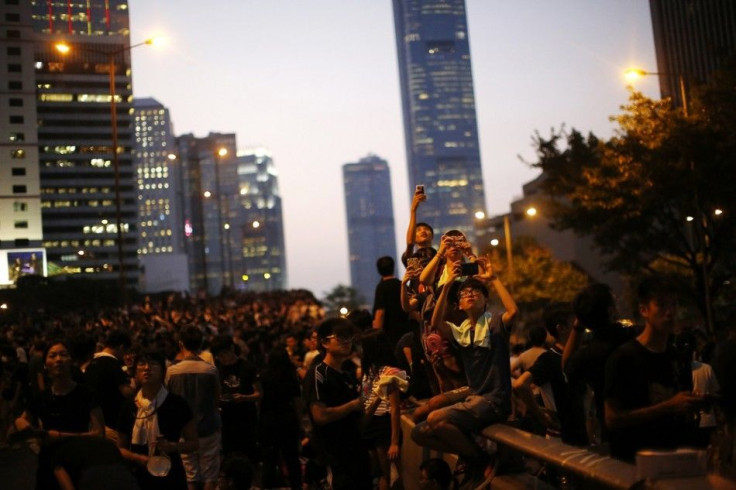Hong Kong Protests: US Urges Restraint By Authorities; Supports More Autonomy

As the Hong Kong protests are gaining strength, the White House has appealed to the Hong Kong authorities to show restraint. White House press secretary Josh Earnest said the U.S. supports freedom of expression and peaceful protests. Police had used tear gas and other mob control methods to control the demonstrations that have paralysed the city's main financial district, reported ABC News.
The Hong Kong protesters are fighting against Beijing's methods to deny fair options for an open election in choosing the Hong Kong Chief Executive. The new rules forced by Beijing, by way of nominating candidates for the first-ever open elections of Hong Kong's leader, promised for 2017, have rattled the protestors.
There is a mini-constitution already in force for Hong Kong. It is called the Basic Law and is drafted to govern the city of 7.2 million people after it returned to Chinese control in 1997, ending 150 years of British rule. The Basic Law guarantees Hong Kong residents all democratic rights until 2047, backed by an inherited British legal system.
The Unrest
The Article 45 of the Basic law stipulates that Hong Kong's top leader, also called the Chief Executive, would eventually be chosen "by universal suffrage upon nomination by a broadly representative nominating committee in accordance with democratic procedures." But the decision of Hong Kong voters will be subject to the final approval by the Federal government in Beijing.
Since the handover of Hong Kong in 1997, the chief executives were being chosen by a group that is dominated by Beijing loyalists. The current incumbent, Leung Chun-ying, elected in 2012 secured some 689 votes from an election committee having a strength of less than 1,200 members.
The Chinese Congress in 2007 ruled that in 2017 the chief executive will be chosen by universal suffrage, on the basis of one person, one vote. But the new hitch to such an open election is a riddle that the China Government has thrown up, by way of a "broadly representative nominating committee".
Last Aug. 31, the National People's Congress Standing Committee came out with a stricture that in order to appear on the ballot, the candidates need to get more than 50 percent of the votes of the nominating committee. This in practice will turn into a Beijing dominated process of packing their own nominees as candidates and is no way different from the earlier practice of using election committee to pick the chief executive.
Rejects Beijing Clause
Hong Kong's pro-democracy activists have rejected this new clause, calling it unacceptable because it guarantees only those candidates approved by China being nominated. In fact, a pro-democracy leader, Benny Tai, who is a professor at Hong Kong University, compared the new method to the way Iran picks its president, reports New York Times.
Beijing initially ignored the pro-democracy movement. Calling itself "Occupy Central With Love and Peace" and enjoys heavy backing of student groups, it is now carrying out their protests against the Beijing's bid to control the city.





















